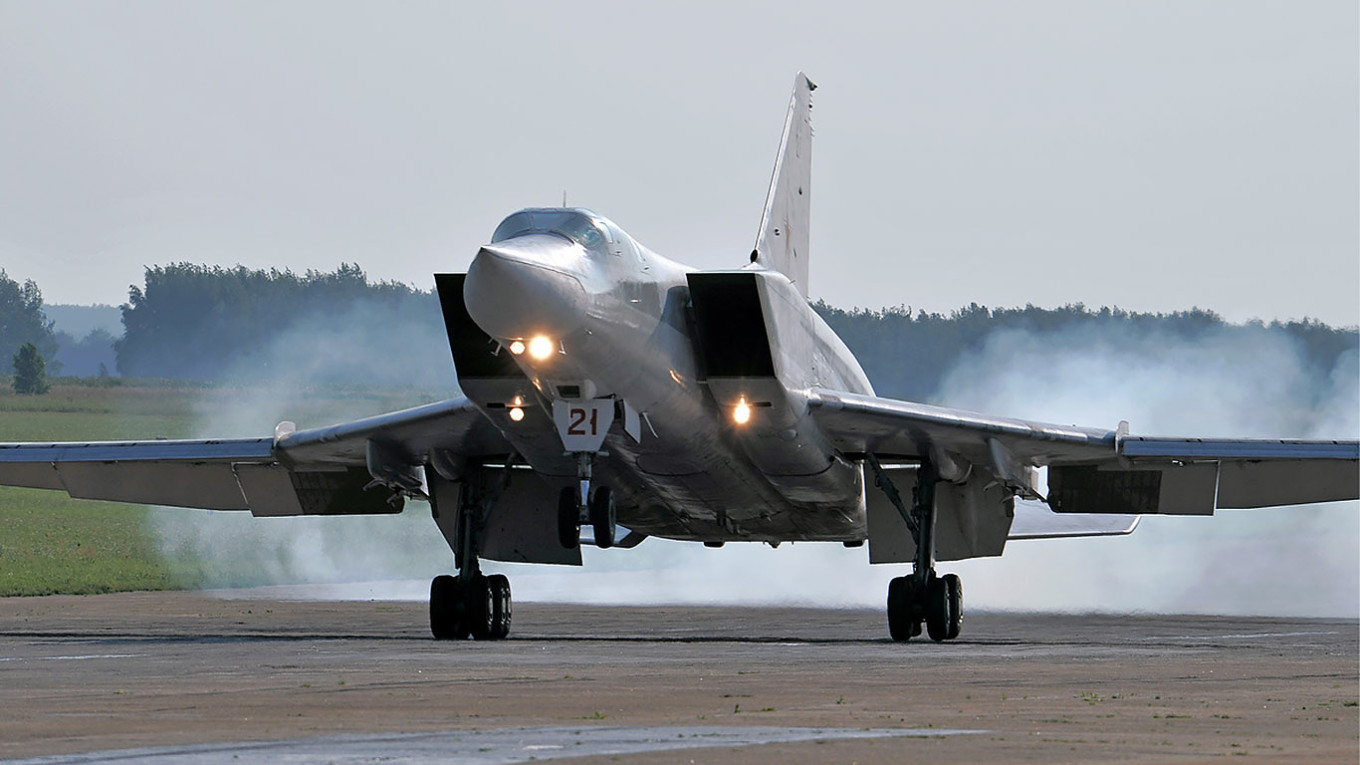Russia’s Federal Security Service (FSB) said Monday it had prevented an attempt by Ukraine to hijack a missile-carrying strategic bomber. In the process, the FSB claimed it gained intelligence to help Russia’s military strike Ukrainian territory.
“The FSB has stopped another Ukrainian special services attempt to carry out an operation to hijack the Tu-22M3 long-range strategic bomber,” the Russian intelligence agency said in a statement.
It claimed an unidentified “special service of a NATO country” was involved in “preparing and implementing” the operation.
According to the FSB, an unidentified Russian pilot was promised money and “Italian citizenship” for flying and landing the Tu-22M3 in Ukraine.
Video published by state news agencies showed the Russian pilot standing in front of the warplane and recounting his communications with the alleged Ukrainian recruiter.
“A stranger wrote to me on Telegram. Without morals or ethics, he started threatening my close relatives [and] demanded that I burn down aircraft,” the pilot said, his voice disguised and face covered by a helmet.
“I told my commanders everything. My interlocutor didn’t even hide that he was from the Ukrainian special services,” the pilot added. “He suggested I hijack a warplane to Ukrainian territory, but not just a plane, but a long-range bomber that can carry nuclear weapons.”
The FSB said “operative work” with the would-be hijackers allowed the Russian military to gain intelligence that helped it “inflict damage” on the Ozerne airfield in western Ukraine’s Zhytomyr region.
The timing of the Ozerne strike was unclear, with previous public reports saying the airfield was last targeted in March and unconfirmed reports on social media claiming there were explosions in the Zhytomyr region.
The FSB did not say whether Russia was pursuing charges into the alleged hijacking attempt.
It was not immediately possible to independently verify the FSB’s statement.
A Message from The Moscow Times:
Dear readers,
We are facing unprecedented challenges. Russia's Prosecutor General's Office has designated The Moscow Times as an "undesirable" organization, criminalizing our work and putting our staff at risk of prosecution. This follows our earlier unjust labeling as a "foreign agent."
These actions are direct attempts to silence independent journalism in Russia. The authorities claim our work "discredits the decisions of the Russian leadership." We see things differently: we strive to provide accurate, unbiased reporting on Russia.
We, the journalists of The Moscow Times, refuse to be silenced. But to continue our work, we need your help.
Your support, no matter how small, makes a world of difference. If you can, please support us monthly starting from just $2. It's quick to set up, and every contribution makes a significant impact.
By supporting The Moscow Times, you're defending open, independent journalism in the face of repression. Thank you for standing with us.
Remind me later.






